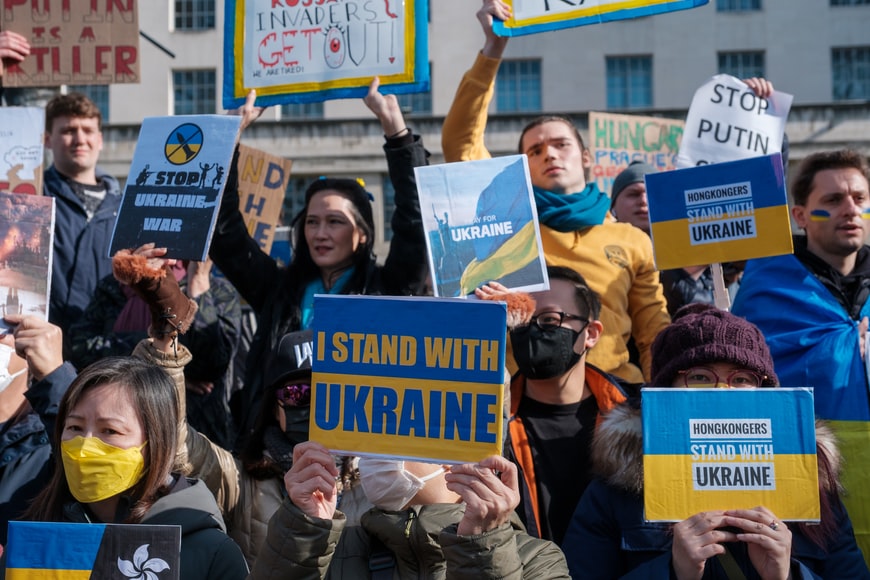Russia has been waging war against Ukraine for quite some time. Since the annexation of the Crimean Peninsula in 2014, the country has not only moved backwards but started another massive war. Ukraine is right now in a difficult situation - key cities are attacked and a huge convoy of Russian troops are advancing towards Kyiv.
Numerous western countries have imposed sanctions on Russia. The Russian rouble has fallen to its lowest and the economy of Russia is gradually shattering. Investment companies have moved out of the country, and problems are only emerging.
Mark Mobius, who is one of the most famous investors in the world, noted that in the near future no one will be investing in Russia, because of the economic situation in the country. He emphasized that it is going to last at least until 2023, taking into account the current situation.
What Sanctions Have the West Imposed on Russia?
The package of sanctions further expands the existing financial constraints by restricting Russian companies’ access to capital markets. It is prohibited to list and provide services in respect of the shares of Russian state-owned companies on the EU trading floors, accept deposits exceeding certain amounts from citizens or residents of Russia, maintain Russian client accounts by EU central depositories, and sell euro-denominated securities to Russian clients.

Russian diplomats, officials and businessmen will no longer be able to use the simplified visa regime for privileged access to the EU. This decision will not affect ordinary citizens of Russia. The head of the European Commission Ursula von der Leyen said citizens and companies of Russia, as it’s written here, are now prohibited from holding more than 100,000 thousand euros in European banks. In addition, western countries published a list of Russian companies against which sanctions are imposed. They are divided into several lists. Each list will have its own restrictions. For example, Appendix V contains four banks - Alfa-Bank, Otkritie Bank, Rossiya Bank and Promsvyazbank. They will no longer be able to use the services of European financial companies.
As expected earlier, the EU banned the export of goods and technologies for the oil, aviation and space industries to Russia, and restricted the export of goods and technologies for the defense and security sectors. Europeans are also prohibited from financing Russian state-owned companies and the government. It is worth noting that the European authorities, when they approved these sanctions days earlier, also disconnected Russia from SWIFT and included President Vladimir Putin on the black list, as a means of punishment. The latter unexpectedly became a reality rather quickly, along with the second round of sanctions. Following the European Union, personal sanctions against Putin were imposed by the United States, Great Britain and Canada.
Disconnecting Russia from Swift will be a major blow for Russia. As Visa and Mastercard are widely used bank cards, the consequences of removing Russia from this system will be harsh for the whole country.
Companies Moving Out of Russia
Against the background of tough sanctions due to what is happening in Ukraine, a number of Western companies that have invested heavily in the energy sector of the Russian Federation began to discuss a plan to withdraw investments from the Russian market. After BP, Equinor and Shell announced the abandonment of investment plans in Russia, many experts turned their eyes to the reaction of other energy giants: ExxonMobil, Chevron, TotalEnergies, Vitol, Wintershall Dea, Eni and Trafigura.
US and EU restrictions do not directly affect the oil and gas sectors of Russia, the revenues from which form the main sources of income for the Russian state budget, largely because 40 percent of Europe’s gas and oil needs are covered by the Russian Federation. Despite this, Western companies operating in Russia for more than 30 years have begun to announce a revision of investment and partnership plans in this country. One of the largest foreign investors in the Russian energy sector, BP, announced the sale of its 19.75 percent stake in the oil giant Rosneft. The total cost of this package is estimated at $25 billion. The Norwegian energy company Equinor became the second company to announce the withdrawal from joint projects in the Russian market and the termination of investments. Shell also said it intends to exit joint ventures with Gazprom, including 27.5 percent of the Sakhalin II LNG project and 50 percent of Salym Petroleum Development and the JV and Gydan Energy. In addition, the company intends to terminate its participation in the Nord Stream 2 gas pipeline project.
Against the background of the initiatives of the three world giants, the whole world is following the actions of other companies such as ExxonMobil, Chevron, Total, Vitol, Wintershall Dea, Eni and Trafigura. It is predicted that the withdrawal of investments from Russia by such giants as BP and Shell in the country may put pressure on other companies and decisions in this direction may accelerate. ExxonMobil, the world’s second largest oil and gas company by market value, owns Exxon Neftegas’ 30 percent stake in the Sakhalin-1 natural gas and oil field, one of the largest foreign direct investments in Russia.




2 thoughts on “It Will Be Impossible to Invest in Russia, Following the War Against Ukraine”